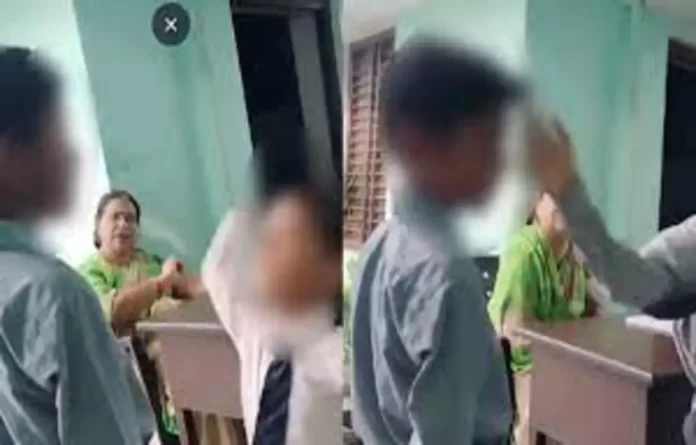In the Muzaffarnagar student slapping case, the Supreme Court on Friday verbally remarked that the state government had not acted in the manner expected after the incident. A bench comprising Justice Abhay S Oka and Justice Ujjal Bhuyan was hearing a public interest litigation (PIL) lodged by activist Tushar Gandhi seeking a proper and time-bound investigation into the incident.
The court in its last hearing asked the state government to submit an affidavit on how it intended on implementing recommendations by Tata Institute of Social Sciences (TISS) regarding counselling for the victim. In compliance with the court’s direction, the education department has filed an additional affidavit.
Appearing for the petitioner, advocate Shadan Farasat criticised the department’s response as inadequate. Responding, Justice Oka asked the counsel to send the petitioner’s suggestions in writing to Uttar Pradesh Additional Advocate General Garima Prasad, adding that if necessary, the Supreme Court will pass an order.
On being asked whether the child was still enrolled in the same school, Additional Advocate General Prashad reiterated what the State of Uttar Pradesh and its education department said on earlier occasions. She said that they were initially reluctant to facilitate his admission to the private school under CBSE board, arguing that there were no government schools closer to his place of residence.
AAG Prashad further added that even after his admission, the government had raised concerns over the socio-economic differences between the child and his classmates along with the distance he had to travel everyday to reach school.
Responding, advocate Shadan Farasat pointed out that the child’s father took him to the school everyday because of the quality of the education it offered. Nonetheless, Prashad argued that this was contrary to the Right to Education (RTE) Act, which mandates that students of classes I to V should reside within a one kilometre radius of the school and older students belonging to classes VI to VIII within a three kilometre radius.
Subsequently, Justice Oka sharply criticized the state government, mentioning that all this happens because the State does not do what it was expected to do after offence. He added that the State should be very concerned about the manner in which this incident has happened. Therefore, the Supreme Court has raised other issues also regarding implementation of the act, he continued. He noted that the Supreme Court will examine whether other directions have been complied with after going through the recommendations by TISS.
Adjourning the hearing until February 6, the bench pronounced that an additional affidavit has been filed by the education department containing suggestions for the implementation of the recommendations made by the Tata Institute of Social Studies. The Court said that the counsel appearing for petitioner, is free to give suggestions to the counsel appearing for the State of Uttar Pradesh, after consulting the parents of the child, on this aspect.


